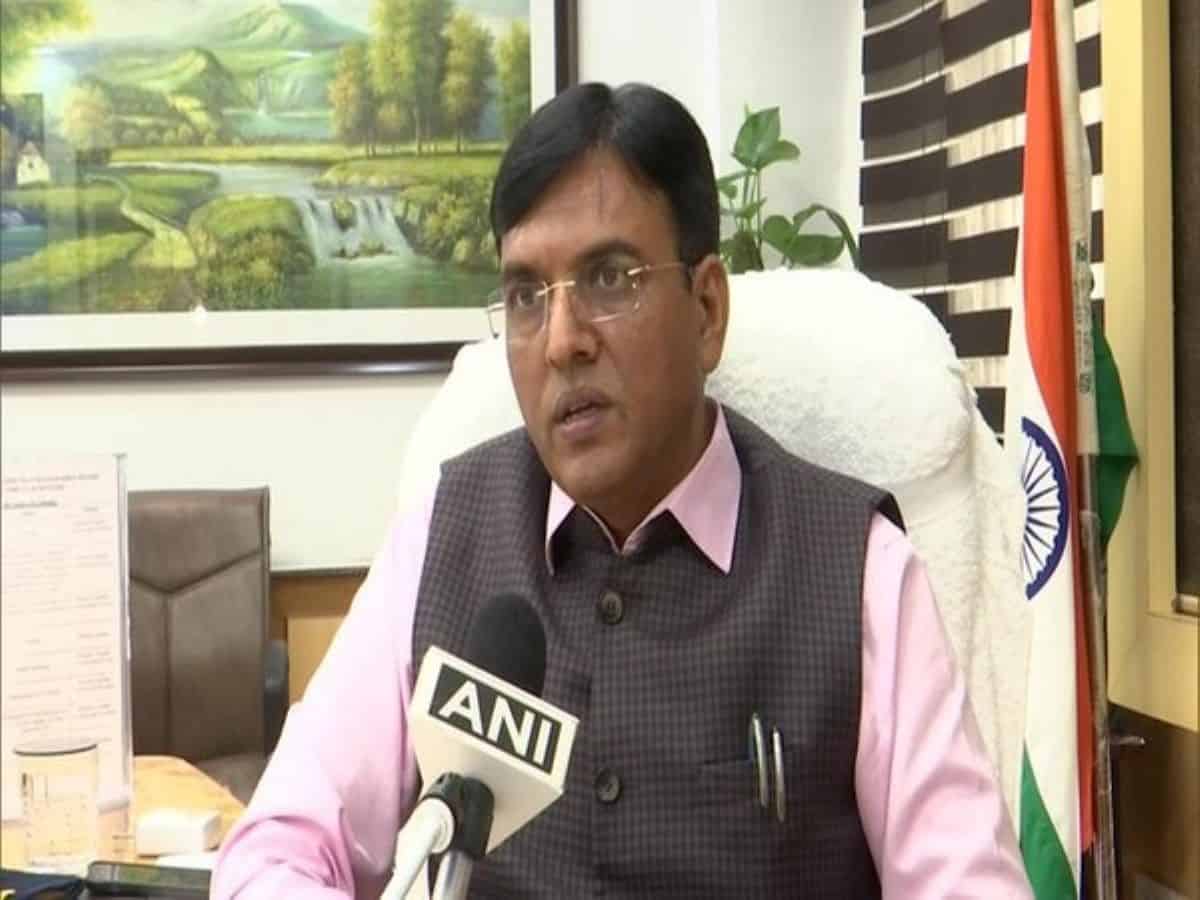
Dehradun: Union Health Minister Mansukh Mandaviya on Saturday stressed the need for ensuring comprehensive and saturation coverage of all health schemes so that no eligible beneficiary is left behind.
Mandaviya hoped that a two-day “Swasthya Chintan Shivir” organised here would provide suggestions on how to shore up existing healthcare facilities as well as on new interventions required across the country.
According to official sources, “Ayushman gram sabhas” will be organised in all villages to ensure that the benefits of the health schemes of the central and state governments reach people and whichever village manages to saturate all the schemes will be declared an “Ayushman Village”.
“The Swasthya Chintan Shivir should help bring us closer to the idea of last-mile connectivity in health. In the last two days, we have seen a detailed overview of the health sector in India today and the direction that we should take going forward to ensure universal health coverage,” Mandaviya said.
“Lok bhagidari” (people’s participation) in Pradhan Mantri TB-Mukt Bharat Abhiyaan can go a long way to help the country eliminate tuberculosis, the health minister said as he urged the states to encourage people to come forward to become Ni-Kshay Mitras.
“Lok bhagidari, people’s participation, is a very essential activity to eliminate the burden of tuberculosis in the country. Our approach toward TB elimination shows the Indian approach to healthcare. I exhort people to come forward to become Nikshay Mitras, as it can go a long way to make India TB-free,” he said.
Mandaviya requested the states to make TB elimination a priority and give it further impetus. He also urged the states to support the country’s “divyang” (differently-abled) population by making it easier to issue disability certificates.
At the Swasthya Chintan Shivir, Dr V K Paul, Member (Health), NITI Aayog, said, “A holistic paradigm for healthcare has been created in the last two days with inputs from all present and it is essential that the resolution that we pass today is put into action, so the goals that have been set can be achieved by next year.”
The health ministers of various states, including Dhan Singh Rawat (Uttarakhand), Rajini Vidadala (Andhra Pradesh), Alo Libang (Arunachal Pradesh), Keshab Mahanta (Assam), Rushikesh Patel (Gujarat), Banna Gupta (Jharkhand), Dinesh Gundu Rao (Karnataka), Sapam Ranjan Singh (Manipur), Dr R Lalthyangliana (Mizoram) and Thiru Ma. Subramanian (Tamil Nadu), participated in the brainstorming conclave.
T S Singh Deo (Deputy Chief Minister and Health Minister, Chhattisgarh), Brajesh Pathak (Deputy Chief Minister and Health Minister, Uttar Pradesh), B S Pant (Minister of Tourism and Civil Aviation, Sikkim), Vishwas Sarang (Medical Education Minister, Madhya Pradesh) and K Lakshmi Narayanan (Minister of Public Works, Puducherry) also participated in the event.
On the last day of the event, sessions were held on various facets of healthcare in India, ranging from Ayushman Bhava, National Tuberculosis Elimination Programme, Elimination of Measles and Rubella and the Pre-Conception and Pre-Natal Diagnostic Techniques (PCPNDT) Act.
